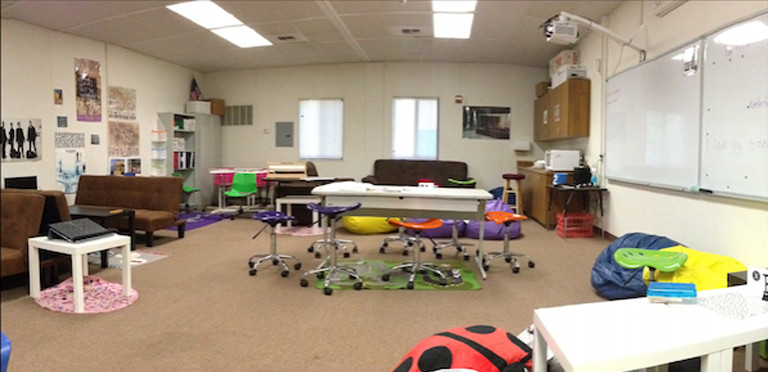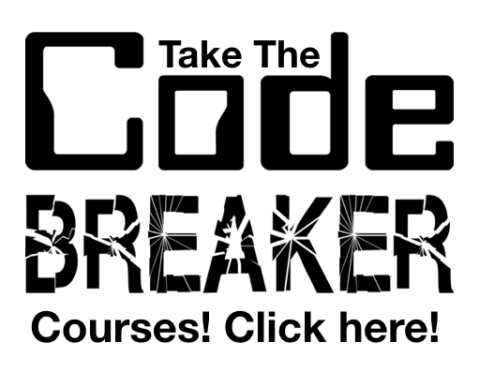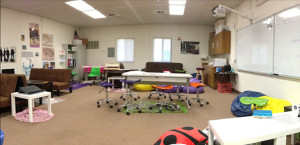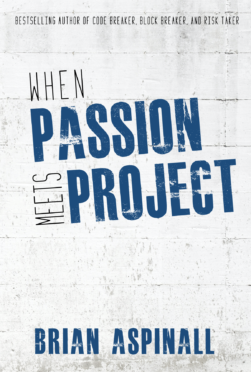I want to start this post by admitting progressive teaching has nothing (per se) to do with technology. Instead it is a pedagogical shift in the teacher’s mind. Yup – I used the word pedagogical. For those who know me, I’m not a fan of the word, but it applies here.
Do I consider myself a progressive teacher? As often as possible. Do I consider myself a traditional teacher? Sure, sometimes. If we were to construct a giant Venn diagram I’d be in the middle – somewhat.
Interesting conversations here! An Educational Debate: 10 Progressive vs. Traditional Teaching Ideas Click To TweetTraditional Education IMO
- Teachers have knowledge to share with students
- Authoritative, in-charge and lecture often
- Clear and distinct rules
- Quiet rows of desks
- Students take notes, mastery of skills
- Prepare for the ‘real-world’
- Textbooks, workbooks, pencil, paper
- Rote, repetitive
- Grade motivated
- Standing teacher at front
Progressive Education IMO
- Knowledge is everywhere, teachers are not experts
- Collaborative, student freedom and self taught
- Common sense rules of life applied to classroom
- Student learning spaces
- Student performance to demonstrate learning
- ‘Real-world’ is an everyday component of class
- Student created materials acquired from knowledge sources
- Open response
- Performance motivated
- Teacher sitting with students, much apart of learning spaces
The biggest component of education today that I struggle with is turning off learning when the bell rings. If we are to be progressive, why do we operate on a schedule? If student learning is now 24/7 why do we stop math and begin science when the bell rings? I especially hate detentions. Consider a student knee deep in a math task. Bell rings. Student must then stop – turn off their ideas and head to detention. Isn’t that punishment enough? And what is ‘punishment’ ? Something a student must complete because of a broken rule. I’d rather just talk about bad choices.
I like to use the common sense to classroom rules in my classroom. I don’t bother with the ‘Class Rules’ anchor chart on the first day of school. If you are going to chew gum, don’t blow bubbles or chew like a horse. Common sense. Sometimes I need a good breath freshener after a morning coffee. If you are going to text, do so when you have some free time and not in the middle of a project. Use school appropriate language etc etc. Long story short, use your best judgement. This approach seems safer than a set list of rules. What happens when a student makes a poor choice that isn’t included in your chart?
I will admit my students have a ‘lunch break’. But only because the school time dictates it. They are also allowed to eat whenever they want. We aren’t Paslov’s dogs. If we get hungry, we eat, regardless of the bell. I think this approach has been successful both because I do see students working through ‘lunch breaks’ but I also see students at practice or in intramurals – and exercise is important.
Lastly – what is preparation for the ‘real world’ ? Why do we prepare elementary students for secondary? Why does secondary prepare for post-secondary? I haven’t written a single test since I entered the ‘real world’ so what is this preparation thing all about?
Maybe post secondary should be better prepared for what is coming out of secondary and maybe secondary should be better prepared for what is coming out of elementary. Our full day kindergarten program is completely progressive. Full of inquiry, full of play and almost zero structure. Collaborative chaos.
I look forward to that cohort when I get them in eight years! (And maybe by then we won’t be so data driven).
Photo source: http://classroompics.com/ – Upload your learning style photos today!
Sometimes I rant. I like to write about what I am thinking in the moment. I encourage people to reply and challenge me to think in another perspective. I am not claiming to be an expert. I am just sharing my thoughts on the topic at the time. Don’t hold me accountable but do question my practice. That’s how I learn.
Enjoy your Sunday.




 For all the kids who grow up in a small town and think they don’t stand a chance. You do. I was once that kid.
For all the kids who grow up in a small town and think they don’t stand a chance. You do. I was once that kid.
I wholeheartedly agree with you. What if we were to change our mind set. What if we were to change from “education is something I get to learning is something that I do.
We need a mindshift from education to learning.
– We want kids to think that learning, not teaching, is personal and done with the teacher as a facilitator and their classmates are their partners in learning.
– We want kids to think that practice is the ability to learn more deeply and authentically; not the opportunity to do the same thing over and over.
– We want kids to think of evaluation as an opportunity to show off what I have learned rather than a high stress, make or break, impersonal event to see if I remembered what the teacher wanted me to long enough to get it down on paper.
I’m just starting to solidify my thinking on this. Let me know what you think.
Dane
http://www.aroundthecornerthinking.blogspot.com
Thanks, Dane. You have made some great points. I especially like how you mention ‘learning, not teaching, is personal and classmates are partners in this learning’. I also like the idea of shifting from education to learning. One is never fully educated, so the term learner is more applicable. I’m off to your blog!
I believe I have a progressive classroom (in regards to above). My students do not know how to function in it. They’ve always been told/taught teacher as expert and that their learning is dependent on me completely. It’s crazy.
Crazy is the new norm.
Traditional vs. progressive is a useful framing, thanks Brian. My heart is in what you have labelled progressive, and I teach sometimes that way, but not as much as I aspire to. Traditional habits die hard, and still have a (smaller) role to play in my class. Combining and transitioning to more progressive seems pretty new in the college setting. Your comment about post-secondary looking at what is coming out of secondary may be tongue-in-cheek, but it is exactly what I am looking to do. For my 2nd year diploma students, I have an almost paperless classroom: online ‘textbook’ (industry resource), online discussion groups, and TopHat interactive technology to engage dialogue and learning. So cell phone/laptop/tablet use it not optional, it is essential. However, as the pilot class for this technology, I find students either ready to embrace it, or not knowing how to function, as Jessica commented above. And it’s a big learning curve for me to transition the learning context using these tools, and to use them to engage applied learning rather than deliver set content.
When students complain it is too much, and ask me for the powerpoint, I ask in return: “Who is going to give you the powerpoint, or the blanks to fill in, when you graduate?” Being asked to think for themselves is still a shock for too many students. And by the way, most classes on the campus where I work still ban the use of technology in the classroom (!!), rather that work to engage students with using it responsibly.
Thanks for your leadership in progressive education, Brian. I am keen to engage with more like-minded colleagues both online and in places like the upcoming edcampSWO. I suspect we are on an exponential learning curve and the fun is just beginning.
I look forward to learning with you online, and at edcampswo!
Paslov’s dogs. It is how? Maybe Pavlov’s dogs. You are preferring the Progressive Education, of course!
As a student who finished the college two years ago, I prefer a progressive education. Unfortunately, not all teachers understand that it’s much better and more productive than traditional education. And we have to learn as before.
Hi Brian,
Thanks for sparking the conversation here. My sense is that things from both lists are going to resonate with most educators. Lots of things to discuss here in terms of beliefs and values. They aren’t new; many, in fact, date back to the very beginnings of public education in this country and elsewhere.
I think that, if you’re going to frame this as an education(al) debate, then we need to be offered something to debate. So I would encourage you (or someone else) to come up with a resolution. What, specifically, are you proposing we debate. And then let us have at it, as they say in the biz!
Stephen